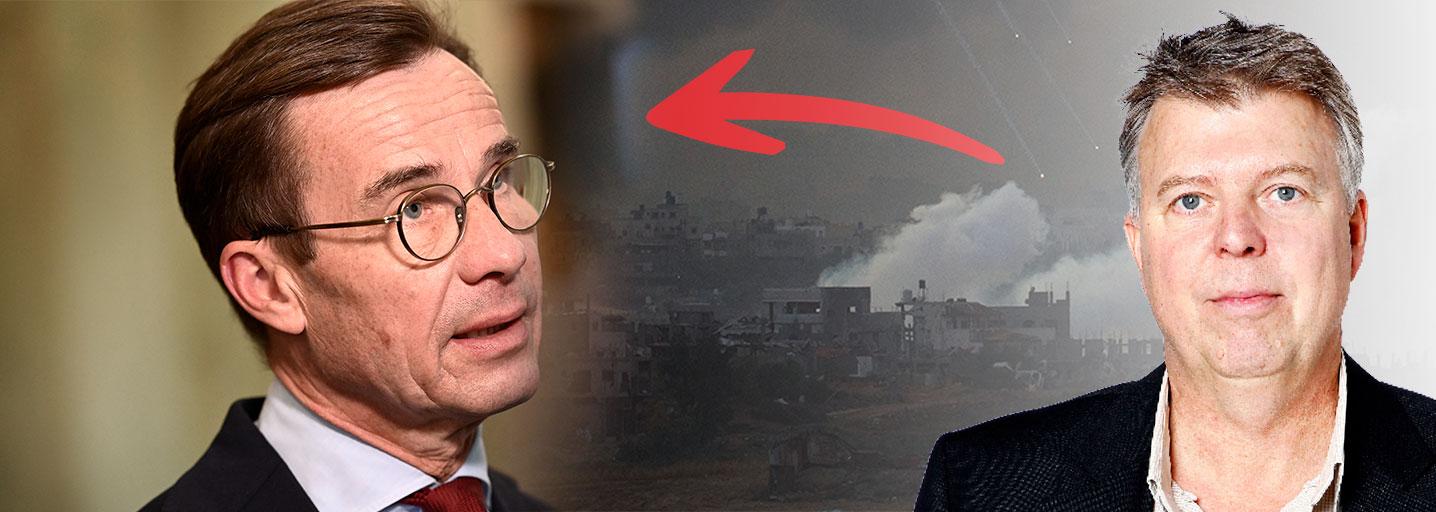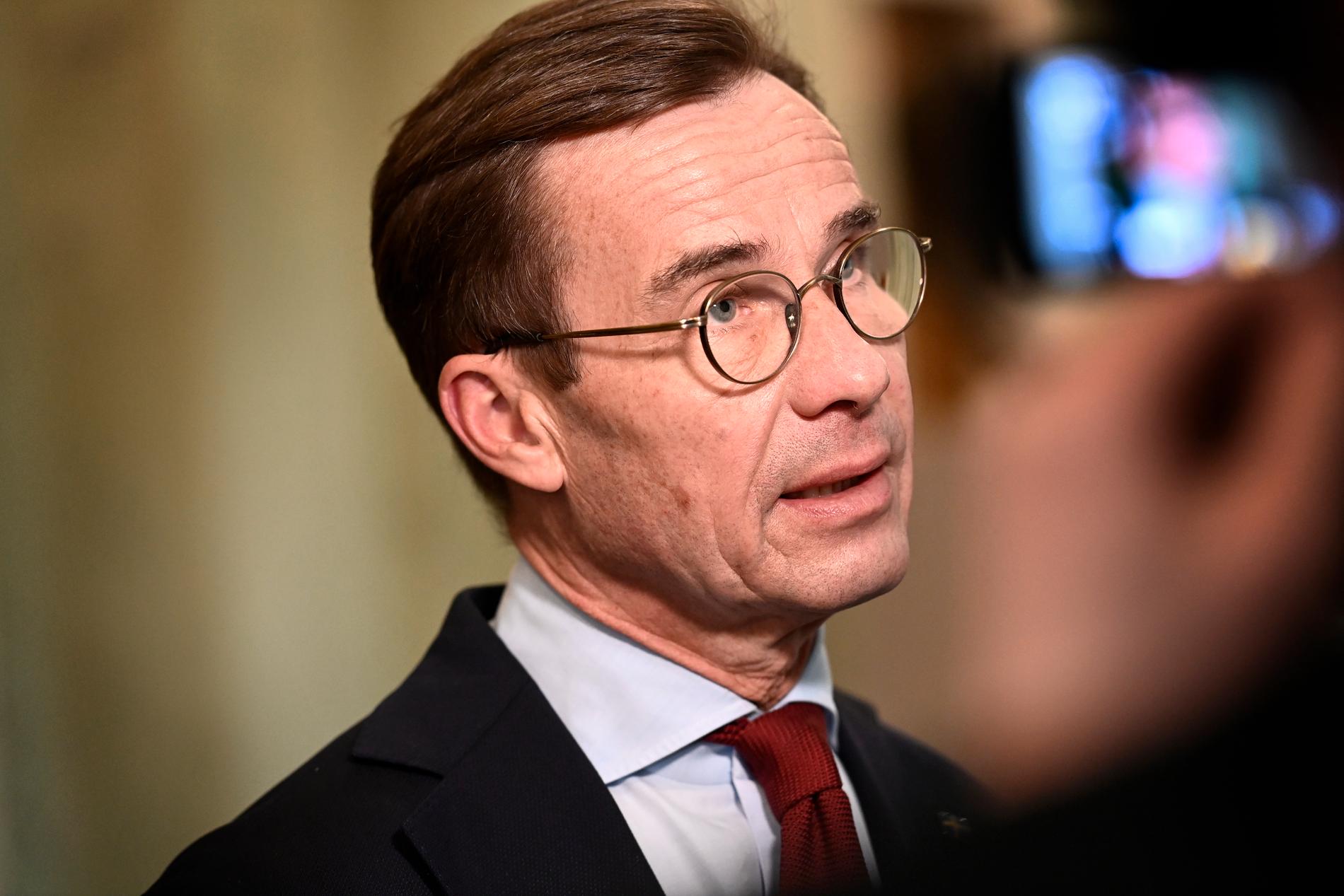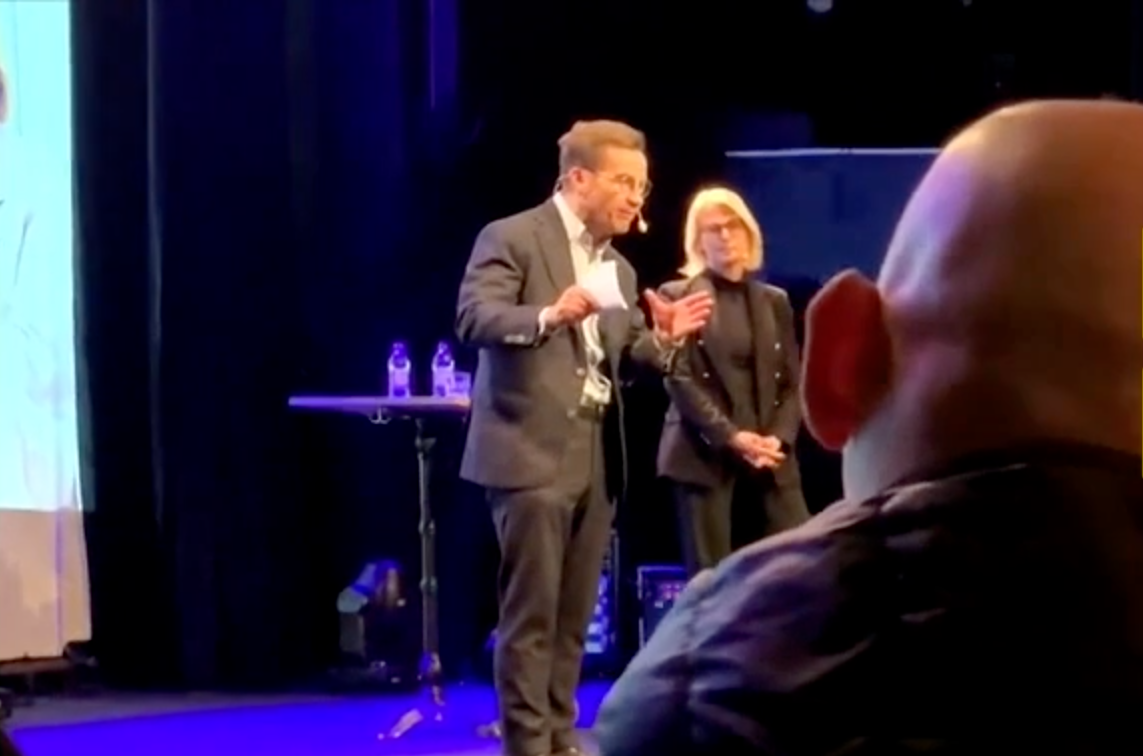
Columnists
The Israel/Palestine conflict
Kristersson extremists' prey in the world's most polarized conflict
Wolfgang Hansson
This is a commenting text. Analysis and positions are the writer's.
Published 2023-11-24 18.10
Ulf Kristersson tried to hold an AW about the world's most polarizing conflict.
It ended with calls and misinformation that could become a threat to Sweden.
No other conflict creates so much violence and outrage around the world.
To blame are the extremists on both sides who constantly blow under the hate.
Prime Minister Ulf Kristersson was not only booed the other day when he defended Israel's right to self-defense and condemned Hamas' terror. In foreign media, especially in the Arab world, false information is being spread that he would have said that Israel has the right to genocide.
Deliberate disinformation whose purpose is to increase hatred towards Sweden, which has already gained a reputation as a Koran-burner and Islam-hater, and at the same time drum up support for the Palestinian cause.

Ulf Kristersson. Photo: Björn Lindahl
One of many proofs of how the Palestine conflict spills over into the domestic politics of a number of countries.
A war in Gaza or the West Bank quickly becomes the world's irreconcilable battle.
Al-Qaeda leader Osama bin Laden partially justified his terrorist attacks on the United States as revenge for the suffering of the Palestinians. He is not alone.
The confiict should have been resolved a long time ago. But any peace settlement is effectively blocked by intransigent extremists.
On the Palestinian side, it is about groups like Hamas. In Israel, the Jewish settlers sabotage all attempts at peace. Both sides also have representatives spread throughout the world who see it as their life's work to block any possibility of a solution that means their own side has to make concessions.
Since my frist trip in 1986, I have regularly visited Israel, the West Bank and Gaza. I have spoken to leaders on both sides as well as ordinary people. My picture is clear. An absolute majority wants to end the eternal hatred and live in peace even if it means they have to make concessions.

Smoke rises over Gaza. Photo: Leo Correa / AP
But there is also a minority who pursue a maximalist policy. They are driven by ideology and must have everything. Refuses to make any concessions.
I remember an encounter with a settler who started by taking me to a vantage point in the occupied West Bank with views for miles. In the salt ice below us, parts of Israel stretch out into the distance.
- If we returned this, we would be easy targets for the Palestinians' shelling, he explained so that I would really realize how unreasonable the idea was according to him.
Then we went on to his residence surrounded by a high fence equipped with motion detectors and armed guards.
The fact that he still moved from the United States to live here surrounded by Palestinian villages, he justified with the fact that the Jews have a biblical right to this land.
Jewish settlers to this day continue to sabotage any possibility of forming a Palestinian state by constantly seizing new land in the West Bank that has belonged to the Palestinians for generations and thus fueling new hatred.
I also remember a meeting in East Jerusalem with a Hamas leader who had spent periods in Israeli prison. But that had not made him abandon the idea that Israel must be wiped out. He made it clear that the Jewish state had no right to exist.
Which is still Hamas's position.
How do you make peace with someone who wants to wipe you out?
The BBC World TV channel yesterday interviewed Yossi Beilin, an Israeli politician who helped negotiate the peace agreement in Oslo in 1993. He was asked what was the biggest mistake that the negotiators of the time made and which led to the agreement never being fully implemented.
The answer came quickly:
- That we underestimated how the extremists on both sides would do everything to undermine the agreement.
It began almost immediately with the assassination of then Israeli Prime Minister Yitzak Rabin in 1995 by a far-right Jew for signing the Oslo Accords in which Israel agreed to return occupied land in exchange for peace.
Instead, a certain Benjamin Netanyahu came to power the following year. He has since done what he could to consign the peace agreement to the dustbin of history. Most recently by choosing settler parties and religious extremists in their government rather than relinquish power. Which led to the Hamas terrorist attack on October 7 becoming possible and to the war now taking place in Gaza.
Israel and the Palestinians may choose to continue their eternal feud for another 75 years. But hopefully, the latest war, which is already by far the bloodiest that has taken place in Gaza, can lead to the majority who want peace being able to advance their positions again with the help of pressure from the outside world.
Since the conflict has such a large impact on the rest of the world, it is in almost everyone's interest to reach a peace agreement that both guarantees Israel's right to security within its own borders and the Palestinians' right to a homeland of their own.
Only then can the eternal spiral of violence come to an end.

Kristersson and Svantesson during question time.
Inga kommentarer:
Skicka en kommentar